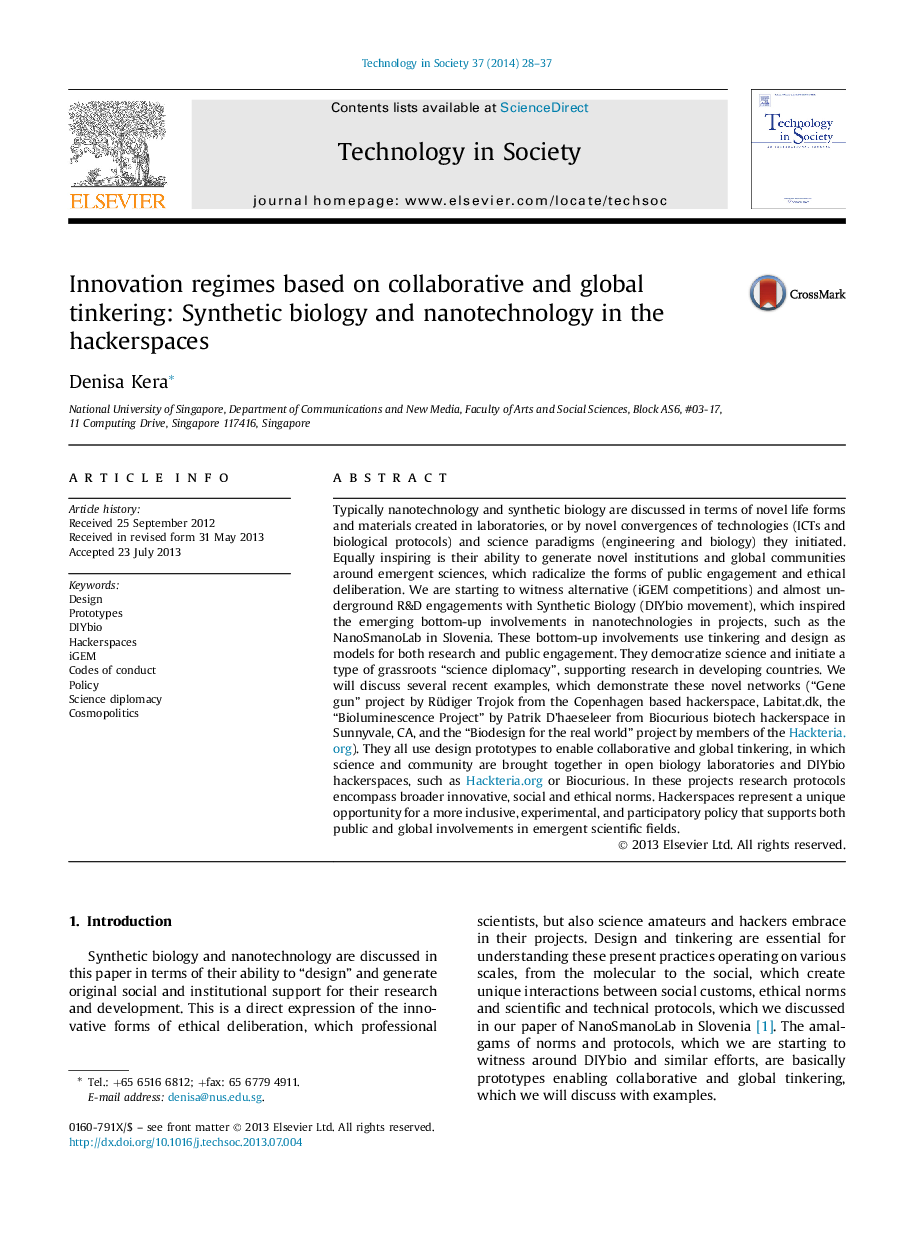| Article ID | Journal | Published Year | Pages | File Type |
|---|---|---|---|---|
| 375207 | Technology in Society | 2014 | 10 Pages |
•Novel forms of public engagement in bio and nanotechnologies in the DIYbio and Hackerspaces.•Decentralized, participatory, and design oriented practices based on open science and open access paradigms.•Alternative R&D approaches bring experimental forms of ethical deliberation and regulation.
Typically nanotechnology and synthetic biology are discussed in terms of novel life forms and materials created in laboratories, or by novel convergences of technologies (ICTs and biological protocols) and science paradigms (engineering and biology) they initiated. Equally inspiring is their ability to generate novel institutions and global communities around emergent sciences, which radicalize the forms of public engagement and ethical deliberation. We are starting to witness alternative (iGEM competitions) and almost underground R&D engagements with Synthetic Biology (DIYbio movement), which inspired the emerging bottom-up involvements in nanotechnologies in projects, such as the NanoSmanoLab in Slovenia. These bottom-up involvements use tinkering and design as models for both research and public engagement. They democratize science and initiate a type of grassroots “science diplomacy”, supporting research in developing countries. We will discuss several recent examples, which demonstrate these novel networks (“Gene gun” project by Rüdiger Trojok from the Copenhagen based hackerspace, Labitat.dk, the “Bioluminescence Project” by Patrik D'haeseleer from Biocurious biotech hackerspace in Sunnyvale, CA, and the “Biodesign for the real world” project by members of the Hackteria.org). They all use design prototypes to enable collaborative and global tinkering, in which science and community are brought together in open biology laboratories and DIYbio hackerspaces, such as Hackteria.org or Biocurious. In these projects research protocols encompass broader innovative, social and ethical norms. Hackerspaces represent a unique opportunity for a more inclusive, experimental, and participatory policy that supports both public and global involvements in emergent scientific fields.
